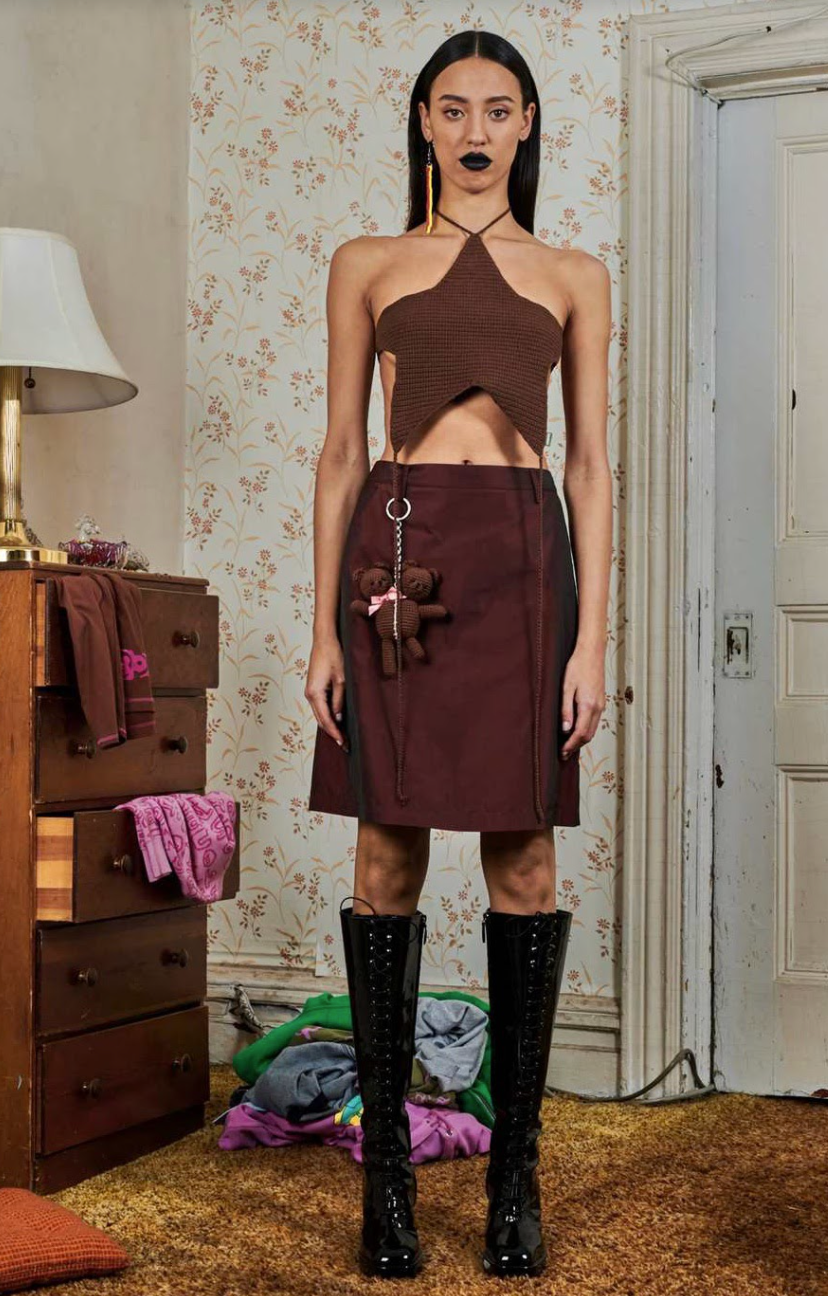Heaven by Marc Jacobs is a Gen-Z Internet Fantasy
In a generation where internet culture influences almost every part of our lives, a clothing line inspired by niche online trends will obviously be a success. This is exactly what Marc Jacobs’ Heaven line is. The website looks like something straight out of a ’90s fashion zine, which is precisely the reason why it has garnered so much attention. It has combined the rampant nostalgia wave in fashion with new trends popularized by social media. The Instagram page currently has 85,000 followers who all seem very devoted to the brand. They regularly post celebrities, models and influencers wearing their clothing line and hanging out in the new Heaven store that recently opened in Fairfax, L.A.
Many designers have attempted to market to younger generations, which has had varying levels of success. Marc Jacobs has arguably been the most successful with doing this, at least in recent times. There is something so much more magnetic and on-the-pulse with this line, way more so than with other high-fashion brands. What set the Heaven line apart from other designers’ attempts at catering to Gen Z?
The genius of the brand seems to be the strategies used to appeal to all the hyper-fixations of my generation. Whereas other designers have failed to properly market to younger people by trying too hard and coming off as artificial, this line gives off the impression that it is a genuine product of our current culture. The cult-like following for it can be explained by the creation of an aura of both authenticity and fantasy. The brand is a revival of a ’90s New York City Marc Jacobs store also named Heaven, which explains how it was so easy to mimic the archival style in a way that does not come off as being fake. Jacobs and his team have brought a fresh creative perspective into vintage revival fashion. Other designers have gone wrong here with their attempts to appeal to younger people, usually because instead of taking inspiration from their old collections they create something that feels try-hard and unauthentic. The promotion pictures for the lines were either taken on a set made to look like a ’90s teenager’s bedroom or taken in the streets of Tokyo and New York City. Heaven is a manifestation of our desire to appear authentic in our aesthetic.
The second layer of Marc Jacobs’ brilliance is the fantasy he created. This aspect can be seen in more obvious elements, such as giving it the very fitting name of Heaven. The store has whimsical decor and bright lights to give a dreamy appearance. It begins to go deeper than this surface-level with the marketing strategy of having some of the most beloved people of our generation model for them, including Bella Hadid, Sydney Sweeney, Dua Lipa, Devon Lee Carlson, Lil Uzi Vert, Rex Orange County, Bladee and several others. The Fairfax store had internet personalities such as Enya Umanzor and Drew Phillips working the floor. As opposed to using regular industry models and store workers, Heaven’s decision to enlist these it-kids of our generation furthered the fantasy around the brand. The proximity to fame, such as being able to own a shirt that your favorite model owns or buy a skirt from your favorite YouTuber, makes it seem more lofty and idealistic. Coupled with the high prices for most of the items, the magnetism lies within the unattainability of it. Heaven’s marketing strategy used the appeal of internet culture and being able to create an enigmatic persona to its advantage.
As Gen-Z slowly becomes the driving force behind the fashion industry, brands will have to adapt to this new consumer group. Most of us really do not see the appeal of buying expensive clothes from these luxury brands. We would rather seek out more affordable pieces that fit our own personal style. This generation tends to choose aesthetics and personality over brand names and luxury. Several brands, such as Neiman Marcus, have filed for bankruptcy recently. Will shifting their branding to appeal to younger people lead to the rebirth of the designer? It seems like this will be the beginning of these big industry names using internet culture to their benefit.
As Heaven has proven, it’s possible to draw in a devoted group if you can create the sense of fantasy and authenticity that our generation chases.
